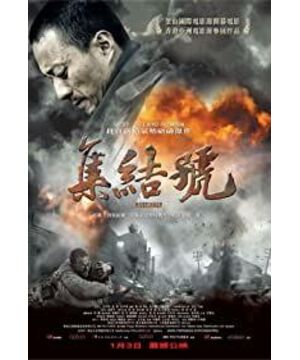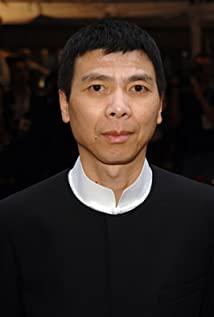Jia Zhangke's insight into the fate of the characters in "Platform" suggested that Feng Xiaogang bring a notebook and a small bench to take a look. What did Jia Zhangke say? How that girl changed from a cultural worker in a county town to a tax collector, and why she remained single for so many years, Jia Zhangke thinks it is not necessary to explain so clearly, after all, the fragmented fragments in the silent passage of time, even the one who lives in it Feeling at a loss, who can explain it clearly? Who can fully understand whose life? But Feng Xiaogang's context is too clear, and his narrative desire is too strong. He has to explain the ins and outs of the characters and the fate of the characters, which fully meets the requirements of drama. In fact, he set up such an embarrassing question "If the millet field is not digging for bones, how can the rest of his life be more meaningful?" The "silent" presence of ordinary characters in the ups and downs of fate is actually the most powerful. Instead of hypocritical clamor, the plot is too dramatic and too focused, and it is also commercial. Behind Feng Xiaogang's actions was a hidden phrase that was difficult for him to answer: Could it be that Gu Zidi is not so persistent in searching for the wreckage, so there is no other way to save those dead lives? Can those dead souls be given meaning without the redemption of millet land? Such a plot is precisely a kind of obliteration and mockery of the dead.
Imagine that in the play, if Millet Di was passively thrown into a mine after the war, instead of actively roaring and roaring like a sacrifice of love, he put his youth on the altar and went to dig up those useless bones every day ( In fact, he can also do something more meaningful to the relatives of the deceased), in that case, the fate of the characters will be more plump and natural. I'm not saying that the more tragic the fate of the characters, the more comfortable the audience will be, but that the more natural it is, the more like the life of a real and normal person, the closer the movie is to us.
In this issue of Sanlian Weekly, there is a short article about the experience of a national army who surrendered to the People's Liberation Army, and the experience of fighting against Japan together with the US military in Myanmar is much better than this rally. The twists and turns of the characters' fate are embarrassing. After he surrendered, he was accused of counter-revolution for many years because he refused to join the People's Liberation Army and then fought against the national army. More than 20 years later, I saw my mother for the first time, but my mother and brother refused to recognize her because of her "counter-revolutionary" status, and she could not be forgiven until she died. So far, the old man is still stubborn and self-respecting to survive. . . This is a digression, I won't say more, just feel that such a natural and not hypocritical life is more powerful.
Teacher Feng Xiaogang is no longer willing to think about what is possible and impossible in life. He holds a bluffing and sensational powder gun in his hand, panics to search, shoots randomly, and fantasizes that he can use his experienced calloused hands to open the eyes of the audience. Tears of the audience. Therefore, in the assembly number, the audience does not need to watch it with their brains, and Feng Xiaogang does not think this film is made for people with brains. There is no room for us to think about life, only commercial sensationalism and the fate of contrived characters.
Feng Sheng, Jiang Lang is exhausted.
View more about Ji jie hao reviews











